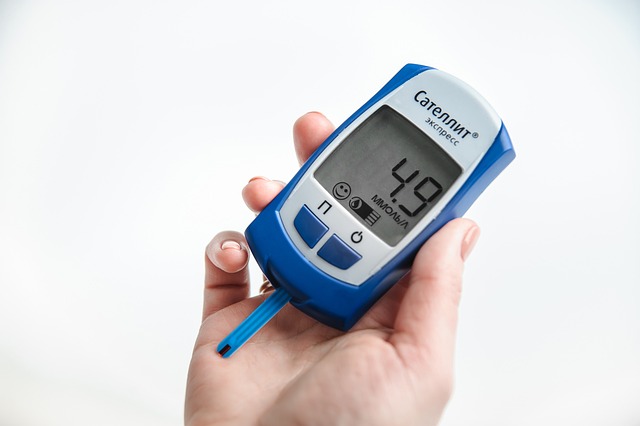Emergency room visits and hospital stays from car accidents and infection such as pneumonia or the flu may be expensive, but they pale in comparison to the cost of chronic disease care. The country spends 86% of its healthcare dollars, or $2.3 trillion annually, on chronic disease and mental health care, according to the National Center for Chronic Disease Prevention and Health Promotion (NCCDPHP) at the Centers for Disease Control and Prevention (CDC).
These and similarly overwhelming statistics are nothing new if you provide health insurance, or are an employer or a healthcare provider. Reducing the burden of chronic diseases among your employees or patients would reduce the money you lose from paying for medical care and lost productivity. As new technologies are developed, better chronic disease prevention and management are coming within reach. These are some current problems that may be interfering with optimal care, and an explanation of how you can address these problems using current technologies.
Healthcare Is Limited and Expensive
Nearly 2 out of 3 American adults have one chronic condition, and more than 2 out of 5 have at least two conditions. That means a lot of people need a lot of healthcare, but the reality is that heathcare providers are in short supply. In its 2018 report, the Association of American Medical Colleges (AAMC) reports that projected shortfalls of both primary care and specialty care physicians and other providers are greater than previously expected, with the possibility of over 100,000 more physicians being needed to meet needs. Chronic disease management should happen outside the hospital setting in any case, and that’s where technology comes in.
Limited availability of heath care affects your wallet and your reputation.
- Care is more expensive (supply and demand…).
- Patients do not get the care they need, leading to poorer health outcomes and greater need for more expensive services (are you footing the bill?).
- Sicker employees and other beneficiaries are less productive due to absenteeism, presenteeism, morbidity, and mortality.
Technology can help bring care to those who might be missing out. Currently, the sickest patients tend to receive the most care, while those who are not yet having a crisis might not receive the ongoing care they need to prevent complications.
Lark’s chronic disease management A.I keeps members healthier while alerting care providers to changes in health – such as a hyperglycemic crisis – that may require intervention to prevent an ER visit. The program is infinitely scalable, as it requires few additional providers even as more patients use it.
Patients Need To Think About Their Chronic Disease Everyday And May Need Help
Patients need to be engaged in their own care if they are to control their conditions, since physician and medical appointments are likely to happen only a few times a year at best. While no patient wants to be more engaged with their condition, there are ways to support them with the things they must do and make it easier. On a daily basis, patients are responsible for the healthy behaviors that are necessary for managing or preventing chronic diseases, whether of obesity, hypertension, high cholesterol, diabetes, arthritis, heart disease, or many others.
Patients can improve their health and be supported by A.I and connected devices to help:
- Taking prescribed medications as directed.
- Monitoring blood glucose and/or blood pressure at home if instructed while receiving education on monitoring.
- Losing weight if they are overweight or obese.
- Engaging in physical activity.
- Eating a healthy diet that is appropriate for their condition(s).
Physicians and other members of the healthcare team can prescribe and adjust medications, order lab and other tests for monitoring, and provide recommendations for diet and exercise, but they are not available to help patients follow through each day. In contrast, a digital health coach can always be there for patients.
Lark helps patients with their management behaviors and promotes engagement through:
- 24/7 availability from anywhere with no appointment – or payment! – needed.
- Instant feedback and personalized responses when users enter foods or activities, or measurements such as blood glucose or blood pressure are detected.
- Reminders to take medications and enter diet and physical activity.
- Education on healthy behaviors for managing chronic conditions.
- Tracking of weight, diet, physical activity, and blood glucose and blood pressure measurements.
- Alerts when users have out-of-range values and may need to contact their healthcare providers.
Cost Savings From Chronic Disease Management Come From Preventive Measures
As you know, the costs of chronic diseases are skyrocketing. Annual national estimates for some of the most common and costly conditions are $245 billion (diabetes), $147 billion (obesity), and $316 billion (heart disease).
It does not have to be this way. Preventing or controlling these conditions can greatly reduce costs, and programs can be cost-effective within years. For example, the estimated average per-person cost of a diabetes prevention program (DPP) is about $500, compared to an estimated cost of $7,900 for medical care if the prediabetic patient progresses to diabetes. Similarly, improving treatment in hypertension can lead to savings of about $100 per person per year.
Your Chronic Disease Management Plan Needs To Work For You
Your intuition and the published data may agree that prevention is cheaper than management and early treatment is cheaper than treating severe complications. Now what?
- What kind of program helps you with “prevention?”
- How do you create or find a prevention program that works for you and your covered individuals?
- How do you get up and running without taking too much of your time and resources?
- Which programs are available that are time-efficient for you to cost-effective due to positive ROI from improved health outcomes,
Designing and building your own internal chronic disease prevention and management program may not be feasible unless your organization has done such things before and is able to spend a lot of money. To prevent or manage chronic conditions, patients need to engage in healthy behaviors every day, and they are more likely to do so when they have the proper support. This can include aid daily or multiple times a day with:
- Medication reminders and education.
- Reminders to measure blood glucose or blood pressure, with feedback on measurements.
- Analysis of diet choices.
- Tracking of weight and physical activity.
A Digital Health Coaching Platform Is An Effective and Scalable Solution
A digital health coaching platform may be the answer. Lark’s artificial intelligence (AI) health coaching has the backing of experts in chronic disease prevention and management, diet, exercise, and behavior change. Different versions of Lark target prevention or management of chronic conditions, such as obesity, hypertension, prediabetes, and diabetes, that may be draining your organization’s healthcare funds.
Lark offers:
- Immediate, customized feedback to patients.
- Compassionate coaching on healthy behaviors.
- Proven outcomes.
- Infinite scalability,
- Backing of health experts.
While offering a new coaching program to your covered patients may seem daunting, it need not be. Lark helps you get up and running with assistance such as:
- Checking patient eligibility for benefits.
- Seamless delivery of devices, such as glucometers or blood pressure meters.
- Performance-based billing.
The easy choice may be to stay with the status quo, but how much is that costing you? In only a few minutes, you can find out about an effective, affordable wellness and chronic disease management platform that could save you money as it improves quality of life for your employees and patients. It is time to reverse the trend of chronic diseases, and you can be at the forefront!











.webp)







.jpeg)